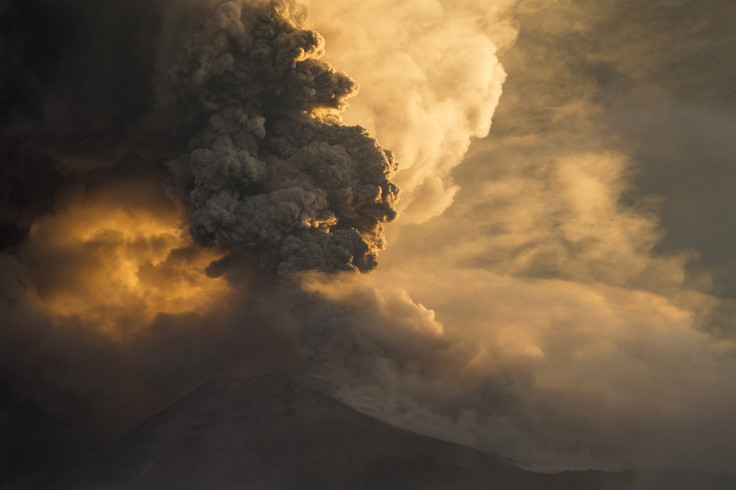Global Warming ‘Hiatus’ Caused By Volcanoes’ ‘Cooling Effect,’ Study Says Eruptions Slow Global Temperature Rise

Since 1998, the average rate of Earth’s rising global surface temperature has relaxed, much to the chagrin of climate scientists whose climate-model predictions told a different story. Now, researchers say they’ve found the cause of Earth’s global warming “hiatus.”
According to a new study, published in the journal Nature Geoscience, volcanoes are the reason the average rate of warming dropped from .31 degrees Fahrenheit per decade between 1970 and 1998 to .072 degrees Fahrenheit per decade between 1998 and 2012. This “muted surface warming” was the result of a series of 17 small volcanic eruptions, beginning in 2000, that spewed enough aerosols into the atmosphere to explain the disparity between climate change models and actual warming trends.
The reason is what researchers call the “cooling influences” of volcanic gases. Sulphur has a sun-blocking effect, scattering incoming sunlight and offsetting emissions of heat-trapping gases. The influence of these volcanic ejections has been largely ignored, researchers claim. Scientists say the effect accounts for about 15 percent of the difference between predicted and observed warming since 2000.
"Part of the lack of the increase in warming for the last 15 years may be due to the cooling effect of volcanoes," Céline Bonfils, a climate scientist at the Lawrence Livermore National Laboratory in California and co-author of the study, told Live Science.
The cooling impact of volcanic eruptions, including the 2011 Nabro eruption in Eritrea, the 2008 Kasatochi eruption in Alaska and the 2010 Merapi eruption in Indonesia, could explain why Earth’s warming climate has paused. According to Reuters, large volcanic eruptions can dim global sunshine for years. But scientists are increasingly learning that even small eruptions can have a dimming effect.
“This is a complex detective story,” Benjamin Santer, a climate researcher at the Lawrence Livermore National Laboratory and lead author of the study, told Reuters. “Volcanoes are part of the answer but there's no factor that is solely responsible for the hiatus.”
This is hardly the first study to suggest that volcanic eruptions can significantly alter the planet’s climate. A 2013 study by a team of scientists from the University of Colorado Boulder found that small amounts of sulfur dioxide emitted from Earth’s surface eventually make it into Earth’s stratosphere where the particles reflect sunlight back into space. Researchers estimated that these aerosols have offset up to 25 percent of the warming scientists attribute to human greenhouse gas emissions.
"The biggest implication here is that scientists need to pay more attention to small and moderate volcanic eruptions when trying to understand changes in Earth's climate," Brian Toon, of CU-Boulder's Department of Atmospheric and Oceanic Sciences, said in a statement. "But overall these eruptions are not going to counter the greenhouse effect. Emissions of volcanic gases go up and down, helping to cool or heat the planet, while greenhouse gas emissions from human activity just continue to go up."
It's not just volcanoes that scientists believe are partially responsible for Earth’s global warming slowdown. A 2013 study by the U.N. Intergovernmental Panel on Climate Change argued that natural variations in the Earth’s climate, such as the ocean’s absorbing of extra heat, could account for our planet’s slowing surface temperature rise, according to The Guardian.
Despite the global warming hiatus, global temperatures continue to rise. Last November was the warmest November on record since 1891, according to a report by the National Climate Data Center. Not to mention that overall, 13 of the 14 warmest years on record have been in this century, the World Meteorological Organization reports.
© Copyright IBTimes 2024. All rights reserved.






















